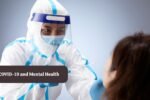COVID-19 took the whole world by surprise. One day life was normal, and the next, we were talking about masks, lockdowns, and social distancing. But even after all these years, many people still have questions about it. Let’s break it down in a simple way so you can understand what it is, how to spot it, and what to do if you get it.
What is COVID-19?
COVID-19 is a disease caused by a virus called coronavirus. You can’t see it, smell it, or touch it, but it spreads easily from person to person. Think of it like glitter—once it’s on someone, it spreads everywhere they go. This is why being careful is so important.
Common Symptoms You Should Know
COVID-19 can feel different for everyone. Some people get really sick, while others feel just a little unwell. Common signs include:
- Fever or chills
- Cough that doesn’t go away
- Feeling tired all the time
- Loss of smell or taste
- Sore throat
- Trouble breathing in serious cases
Sometimes it can feel like the flu, and sometimes you might not even know you have it. That’s why knowing the symptoms can help you act fast.
How COVID-19 Spreads
The virus mostly spreads through tiny droplets when someone talks, coughs, or sneezes. It can also spread if you touch something that has the virus on it and then touch your face. That’s why hand washing is your best friend here—it’s like giving the virus a one-way ticket to the drain.
Why Testing is Important
Testing helps you find out if you have the virus, even if you feel okay. This is important because you could still spread it to others without knowing.
There are mainly two types of tests:
- Tests that check if you have the virus right now (like rapid tests and PCR tests)
- Tests that check if you had the virus before (antibody tests)
If you feel sick, get tested as soon as possible so you know how to protect others.
How to Care for Yourself if You Have COVID-19
If you test positive, don’t panic. Most people can recover at home. Here’s what you should do:
- Rest as much as you can
- Drink plenty of fluids
- Take fever medicine if needed
- Stay away from others so you don’t spread it
- Keep in touch with a doctor if symptoms get worse
If you find it hard to breathe or feel very weak, seek medical help right away.
Preventing COVID-19
You can’t avoid every risk, but you can lower it a lot. Simple habits help:
- Wash your hands often
- Wear a mask in crowded places
- Keep some distance from people who are coughing or sneezing
- Keep rooms well-ventilated
- Stay home if you feel sick
Prevention is like locking your door—it keeps unwanted trouble out before it even starts.
Why Mental Health Matters Too
COVID-19 isn’t just about physical health. Staying at home for a long time, worrying about loved ones, and dealing with changes can be stressful. Talk to friends, keep yourself busy with hobbies, and don’t hesitate to seek help if you feel low.
Conclusion
COVID-19 has changed the way we live, but understanding it makes it less scary. If you know the symptoms, get tested when needed, and take care of yourself, you’re already doing a lot to protect both yourself and others. Think of it like driving—you can’t control the road, but you can control how safely you drive on it.















